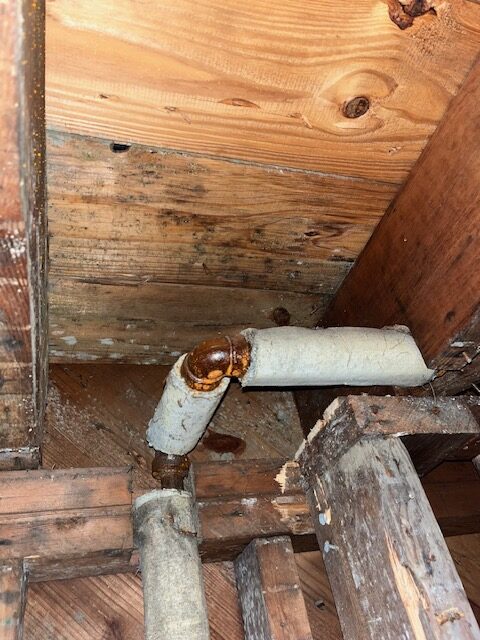Buying a home is an exciting and significant investment, but it’s essential to prioritize your family’s health and safety during the process. One potential hazard that often goes unnoticed is asbestos, a harmful mineral once widely used in construction. Testing for asbestos before finalizing a home purchase can provide you with peace of mind and allow you to make informed decisions. Here, we will explore the importance of testing for asbestos during the home buying process and provide valuable insights to help you navigate this crucial step.
Understanding Asbestos: Asbestos is a naturally occurring mineral that was commonly used in building materials until the late 20th century due to its insulating and fire-resistant properties. However, it poses serious health risks if its fibers are inhaled. Exposure to asbestos has been linked to severe health conditions, including lung cancer, mesothelioma, and asbestosis. Given these risks, testing for asbestos is crucial, especially in older homes constructed before the awareness of its dangers.
Why Test for Asbestos During the Home Buying Process?
- Health and Safety: Testing for asbestos allows you to identify any potential asbestos-containing materials (ACMs) present in the property. By doing so, you can ensure the safety of your family and make informed decisions regarding necessary precautions or remediation measures.
- Cost Considerations: If asbestos is discovered during the home buying process, you can factor potential remediation costs into your budget and negotiations. Knowing the presence of asbestos allows you to assess the financial implications and make informed decisions about the purchase.
- Renovation and Future Plans: If you have renovation or remodeling plans for your new home, asbestos testing becomes even more critical. Identifying any ACMs beforehand will help you plan accordingly, taking into account the safety measures, costs, and specialized expertise required to handle asbestos removal or encapsulation.
The Asbestos Testing Process during the Home Buying Process
- Professional Inspection: Engaging a certified asbestos inspector, like our company, is highly recommended. We will conduct a thorough inspection of the property, focusing on areas where asbestos-containing materials are commonly found, such as insulation, flooring, roofing, siding, and textured ceiling coatings.
- Sampling and Laboratory Analysis: Our inspector will carefully collect samples of suspicious materials for laboratory analysis. These samples will undergo rigorous testing using specialized equipment to determine the presence and concentration of asbestos fibers. It is crucial to rely on accredited laboratories for accurate results.
- Interpretation of Results: Once the laboratory analysis is complete, you will receive a detailed report indicating whether asbestos is present and, if so, the extent of its presence. This information will guide your decision-making process, allowing you to assess the risks and potential abatement options.
Next Steps: Dealing with Asbestos Findings
- Consultation with Experts: If asbestos is found, consult with professionals experienced in asbestos management, such as asbestos abatement contractors or environmental consultants, like us. We will provide guidance on appropriate remediation measures and associated costs.
- Negotiations and Contract Adjustments: Depending on the findings and recommended actions, you may need to renegotiate the purchase price or request the seller to address the asbestos issue before finalizing the transaction. It’s crucial to have a clear understanding of your legal rights and obligations regarding asbestos disclosure and abatement.
Testing for asbestos during the home buying process is an important step to ensure the safety and well-being of your family. By proactively addressing asbestos-related concerns, you can make informed decisions, protect your investment, and create a healthy living environment for years to come. Remember to give us a call for accurate testing, interpretation of results, and guidance on remediation measures.


It was so thoughtful of you to remind us that necessary remediation must be done to eradicate the presence of asbestos if any. This is what my uncle should atke note of considering he found some small traces of such a substance in his basement recently. I hope he’ll ask an auditor or surveyor to check on the area.
It’s excellent that you went into detail about how asbestos testing enables you to determine whether the property may contain any potentially asbestos-containing materials (ACMs). You can protect your family’s safety and make well-informed decisions about any necessary preventative or corrective actions by doing this. Since my grandma’s house is getting older, I want to have it inspected as soon as possible for potential repairs before I put it up for sale. This will be something to consider shortly when I select a home inspector to work with.
I’m delighted you discussed how If asbestos is discovered, speak with experts in asbestos management, such as environmental consultants or contractors with experience in asbestos abatement. Since my grandma’s house is getting older, I want to have it inspected as soon as possible for potential repairs before I put it up for sale. This will be something to consider shortly when I select a home inspector to work with.